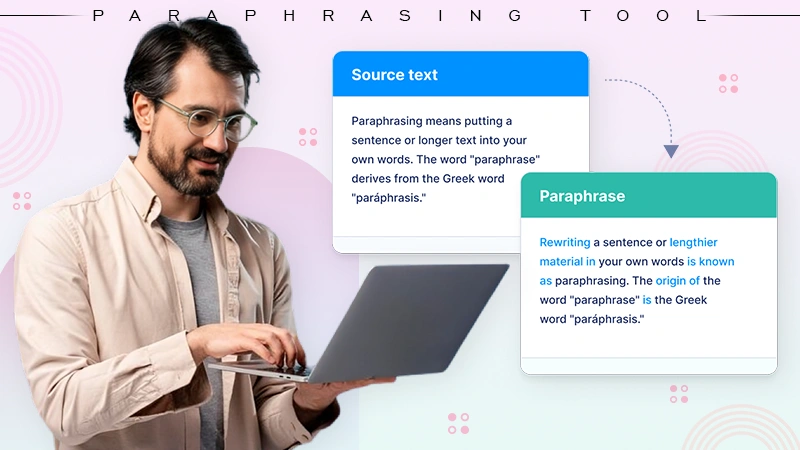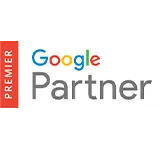Encyclopedic Guide On Moz Spam Score & How to Keep It to Levels
High Spam score! Is it really bothering my website ranking?
- What is Spam Score In Nutshell?
- How to Check the Spam Score?
- How to Reduce Your Website’s Spam Score
- How Does Moz Spam Score Work?
- What Impact Does Moz Spam Score Have on Ranking?
- High Spam Score – What Actions Are Required
- Case Study of High Spam Score Website from Digital Marketing Niche
- Top 5 Websites with High Spam Score
- FAQs
Well, this question can bring a dark cloud of doubts into your mind. It is a question of concern, as digital marketers are divided into two sides regarding the spam score. Most of them thought that spam score has nothing to do with the ranking, but a number of marketers take spam scores seriously and put efforts to bring the score down to the standard levels.
If you are entering into the world of SEO, this might have puzzled you, well, worry not, as an experienced digital marketer and having experience of over 10 years in the SEO industry, I will try to bring the confusion at bay and provide the exact answer with deep explanation to all your questions regarding website spam score.
What is Spam Score In Nutshell?
Google search is changing and improving with rapid speed and most of the updates focus on improving content and filtering spam from the internet. Apart from Google, Moz, one of the largest SEO communities on the internet, developed an algorithm that can identify untrustworthy sites filled with spam by giving them scores from 0% to 100%
The spam score is a metric developed by Moz’s Director of Data Science, Dr. Matt Peters in 2015. It measures the spammy links or links from the low authority websites to your page or domain. Moz’s machine learning model was based on 17 common components back then but now it has 27 flags that are gathered from the millions of banned or penalized sites on Google.

As per the Moz algorithm, a score of 1% to 30% counts as a low spam score, and 31% to 60% falls into the medium zone, and above that is considered a high toxic spam score. No doubt, low-quality links are termites to your website that gradually contribute to bringing down the ranking of your website.
How to Check the Spam Score?
Checking the website spam score is an easy-peasy task. There are plenty of tools available that allow you to check the spam score of a particular domain or page, but the given results can’t be trusted. So, use the Moz Link Explorer tool, a tool from the originator of the spam score concept. Follow the underneath steps that will make the process of checking spam scores uncomplicated.
Open https://moz.com/ on your web browser and from the homepage click on the Log in from the right top corner of the page.

Now you will be moved to the login page of Moz and after filling in the information like Email Address and Password into the respective field click on the yellow Log in Button.

After that, the account’s internal page will open with plenty of Moz tools, find the Link Explorer section, enter the name of the URL, and tap on the Click Button.

We have entered Twitter into the URL section, now you will be redirected to the overview page, where the essential details will be visible about the entered domain.

Now move your mouse into the left corner of the screen, find and click on the Spam Score.
From the Spam Score page, you can check all stats such as linking domains, Domain Authority, and Spam Score.

How to Reduce Your Website’s Spam Score
Websites with a high spam risk have a great chance of getting their content buried in search engine results. The good news is, there are steps you can take to reduce your website’s Spam Score.
To ensure your website doesn’t become a spammy site, check your website’s current spam score by using the spam score tool. To reduce your spam score, make sure all of your content is relevant and high quality, including helpful and engaging information that attracts visitors. Pay attention to the underneath points that will boost your efforts of putting spam scores down.
Dodge Black Hat SEO Techniques
To increase instant traffic to their websites, most people adopt spam techniques like black hat SEO. It will benefit the website in the short term, but in the long run, this tactic will ruin your website and increase your spam score which leads to Google penalties. Once you are caught on Google’s radar, there is no way back for at least 6 months.
Hence, avoid black-hat SEO stuff like keyword stuffing, low-quality content, and creating low-quality backlinks to your site. Instead, prefer creating high-quality content and trying to get the backlink from trusted sites. Linking to relevant websites shows Google that you are a trustworthy website. This will help reduce your spam score.
Use Rich Content With Keywords
Posting quality content to your website is key to reducing your spam score. Quality-rich content that is filled with keywords related to your niche, brings value to your content and the website and also helps users to feed with what they need.
Stuffed keywords are considered spam and only help in boosting the spam score of a website, so you have to use keywords that sync with the content and look organic. Rich content will also help your site rank higher in the search engine results.
Create Quality Backlinks
One surefire way to boost your website’s ranking is to build backlinks. In simple words, backlinks are links of your website placed on high authority sites to distribute the link juice of websites and this signifies your trustworthiness to Google.
The more backlinks you have, the more authentic your site is. Getting quality backlinks is vital. Avoid low-quality backlinks or paid links or links from spammy sites. Find reputable websites to link to you. Additionally, building relationships with other bloggers in your industry, help you find appropriate partners for your backlinks.
Install an SSL Certificate
There are certain rules that you need to consider and installing an SSL Certificate is one of them. A website without an SSL certificate is straightforwardly termed as a spammy website because of an unsecured connection. Such kinds of websites are soft targets for hackers and spammers, they can easily hack them down and make them places for spam activities.
Consequently, having a secure and encrypted website will reduce your spam score. A high spam score website can be easily hunted down by Google, so the chances of getting penalized get higher.
How Does Moz Spam Score Work?
As of now, you must be aware of the Moz spam score; these metrics help to identify whether the websites linked to a domain or subdomains are spammy in nature. There are 27 spam signals the Moz tool follows, which helps to calculate the spam score of a domain. However, keep in mind that, now it only checks the score of subdomains.

27 Spam Score Signals By Moz
In the initial phase, there were 17 spam score signals that existed but over time and with regular changes in Google Algo and users’ search behavior, the count reached 27, let’s dive into the depth of all the signals;
Fewer Pages on A Website
Having less quantity of pages on your website indicates Moz to count it as spam. However, it doesn’t mean you need to load your website with thousands of pages as most of the sites with low pages count as low-effort websites and it doesn’t provide value to search engines. Hence it signals spam to Moz.
Low-Level Domains
TLD (top-level domains) are the symbol of trust and authenticity to Google, on the other hand, low-level domains signify spam and distrust. Hence, such kind of domain counts as spam, here are a few examples;
- .info
- .cf
- .ga
- .ml
- .loan
- .tk
- .work
- .organic
- .men
- .date
Domain Length
The domain name must be unique or relevant to your business or website but using the whole keyword while choosing a domain for the purpose of getting ranked on Google, is not accepted by Google. Moz marked long domain name length as spam. Here is an example of a spammy domain; “Digitalmarketingcourse.searchengineoptimization.com”.
Domain Name With Numbers
Adding numerical numbers to a domain name might sound unique and trendy. But it is a spam score signal to Moz and many websites are perceived as spam websites due to this factor.
Unavailability of Google Font API
There is a certain set of rules that Google wants users to apply, and using Google Font API in the Domain name is one of them and the unavailability of this will count as spam.
Absence of Google Tag Manager
Google Tag Manager allows you to manage all your tags on the website without making changes to the coding. It is essential and helpful for website owners to keep track of tags. In the absence of this tag, the website will be marked as spam, as most spam sites don’t use this tag.
Double-click Tag
Double-click is one of the key tags for Google, as it helps to manage online ads and to know the campaigns, or products that generate revenue for Google. Most spam sites do not use it, so it gives the signal to Google about the nature of your website.
No Link LinkedIn
LinkedIn is a trusted authority website available on Google, if your site has a link pointing to this authority site makes you eligible to get the thumbs up from Google. On the other hand, the absence of a link to LinkedIn will mark the website as spam.
No Phone Number. Email Address and Contact Information
Most reputable websites included phone numbers and email addresses to communicate with users. But most spam websites do not put effort into adding any of them to the sites.
Missing HTTPS
HTTPS is a sign of trust and indicates that the site is SSL certified and it is a great trust signal to Google that all the information of users or customers is secure from hackers and other factors. If HTTPS is missing from your sites then, it is clearly stated that you don’t follow the Google protocols, and this signals a spam score.
Meta Keywords Tag
The purpose of using the meta keyword tag is to inform the search engine about the relevant keyword to the page or content. But websites with many keyword tags count as spam and it falls under keyword stuffing. To trick Google, spammers overuse the keyword tag, thus Moz considers it a valid reason for giving scoring spam.
Rel=Canonical Tags
Rel=canonical tag is used to tell the search engines that the particular URL is the main URL of the page, which helps Google to differentiate the pages. But the absence of a non-local rel=canonical tag is related to spam.
Title Length
Meta titles are crucial for the page to rank on Google or another search engine, hence there is a certain limit which is “60 characters” to tell the search engines about the content of the page. Hence, above the 60 characters length title, consider spam activity.
Meta Descriptions Length
The meta description is essential for good SEO results. However, the description must be between 155 to 160 characters, between this range you need to write about the topic or website page. But the spammy website doesn’t care about the limits and writes unnecessary lengthy descriptions or writes too short. So this factor counts as a spam score for Moz.
Absence of Favicons
Favicons or browser icons are used for the customization of websites and are one of the key factors for Google. A small 16*a 16-pixel image or icon is a must this shows the credibility of the website. If your website doesn’t have a favicon then, your website spam score is most likely to increase.

Facebook Pixel
Facebook Pixel code is helpful in measuring the actions and behavior of website users. Including this code on the website, is considered a green signal by Google as well as Moz. However, most spam websites don’t put effort into using this code.
Domain Link Ratio
To avoid getting a spam score by Moz, you need to maintain the ratio of the domain link, as an uneven ratio of external links to different domains results in an increasing spam score.
External Links in Content
If you are adding external links to your content, then you should maintain the ratio. However, it depends on the length of content, and how many links you can give. If your content is about 500 words and you are inserting 10 to 12 links then it counts as spam. Adding 1 or 2 links in 500 words is legitimate but it might land you in a spamming zone.
Vowels/Consonants Words in Domain Name
First impression matters, it applies to the website domain name. In the Internet world, the domain name is the face of your presence, so be attentive while picking a domain name. If a domain name has many vowels or consonants it is considered spammy.
Domain Name with Hyphens
There are many types of domain names, and TLD (Top-level Domain) is mostly preferred by authentic users. There are rare legitimate sites that use the hyphen or number in the domain name. As most users know (expect spammers) hyphen is the trigger point to increase spam scores.
URL Length
The length of the page URL is another significant factor Moz considers while counting the spam score. Most pages, especially Spammers either use too small or too long URLs for their pages. It is a red mark and counts as spam.
Poison Words
Most spam websites focus on the words that are linked with webspam, such as casino, games hack, adult, pharmaceuticals, and more mostly as anchor text.
Low Number of Visitors
Websites with low visitors, clicks, or website traffic are most likely to count as spammy.
High CPC Anchor Text
Most spam sites use a particular keyword with a high CPC with the motive of getting a rank on it. You can see these keywords all over the websites and mostly with the Anchor Text on it.
What Impact Does Moz Spam Score Have on Ranking?
Website spam scores may not be a matter of concern regarding ranking on search engines. Though the Moz spam scores can be used as a reference to analyze the quality of content, internal, and external links. As it does not have any impact on website ranking and Google does not consider spam score as a ranking factor. Google has its own parameters, hence it has nothing to do with the website ranking.
Google’s John Mueller has confirmed the more obvious questions including that Google does not use DA, a Moz metric. And now that Google does not use the spam score metric from DA.

There are many websites that have high spam scores and still rank top in search engines. Google uses its own factors and algorithm to rank content. Hence, Moz spam score is good but not everything for your SEO efforts.
High Spam Score – What Actions Are Required
Spam score is something but not everything, but as a Digital marketer, you don’t want to take any chances, so you can do a few things in case the spam score bothers you.
For example, if your website has a spam score of 25%, start by searching for the problems and fixing them on an immediate basis. Google has nothing to do with the spam score but reducing it will make your SEO efforts more fruitful.
Let’s say, the domain age is around a year, and it has several links from low-quality websites, in that case, you can avoid the spam score metric. On the other hand, if your website has huge traffic and has many pages and the overall performance of the website is sinking down, then you can give a look at some spam checking tools but Moz link explorer is the best of all.
You must visit the search console tool and check the reports to see any Google penalties. If nothing is there, try to look for indexing issues or broken pages. When your website is huge it’s common to have issues with a few pages but the search console will identify it slowly but definitely.
If everything is right with the search console then, perform the backlink audit, with this, you will be able to know what Google is indexing and what is not. While performing backlink audits you may see many spammy links but not all of them need your attention. For example, while auditing a client’s website a few months back, I saw backlinks from other countries like Russia, Indonesia, and more. These links don’t have an impact on your ranking. You could use the Google Disavow tool for such types of links.
You should pay attention to sites that are spam and malicious in nature such as gambling, loans, drugs, porn, and others. A backlink from such sites has a disastrous impact on your traffic and search ranking. Apart from that, you can check Moz’s 27 spam score signals mentioned in the above section of the blog, which will help you identify the root cause.
Case Study of High Spam Score Website from Digital Marketing Niche
As a full-time, digital marketer, I have come across many projects that are mind-boggling. Recently I received a project of a tech blogging website that has a huge spam score, a project with many pages and good domain authority, but the client was concerned about the dropping traffic and increased spam score.
However, due to malicious backlinks created in the past, the website score was around 72% on the Moz tool. Hence, an action-packed strategy was needed to reduce the toxic score of the website.

Reducing the spam score in a short span of time and also eliminating the spammy or unnatural links that existed in the backlink profile.
Solutions
- Backlink Audit
- Creating & Uploading Disavow File
- Re-examining Backlinks
Outcome
After performing the solutions, I was able to bring the spam score down to 2% on the Moz tool. As you can see in the below-given image. However, I explained the concept of spam score to the client that it has nothing to do with the ranking or traffic but the increased spam score continuously bothered him, so I had to bring the spam score down to 2%.

Top 5 Websites with High Spam Score
- Netflix



- Stack Overflow

- Global Times

FAQs
What are the Contributing Factors to a High Spam Score?
- Using excessive keywords in your content
- Having broken links on your site
- Hosting your site on a free web host
- Having a lot of links to other sites
How to Maintain a low spam score?
- Use keyword-rich titles and descriptions
- Make sure all links are valid and active
- Use a reputable web host
- Confine the number of outgoing links on every page
How Can I Reduce Website Spam Score?
- Be choosy about the links you include on your site. Only link to high-quality, relevant websites.
- Use keyword-rich anchor text for your links. It helps search engines understand what your site is about and helps improve your rankings.
- Keep your site’s content fresh and informative. Go beyond the basics with new perspectives and interesting insights.
- Make sure your site is easy to navigate and search engine friendly. A well-organized site will be rewarded with better rankings.
- Advertise your site via social media because getting the word out there will help attract visitors and boost your reputation.










